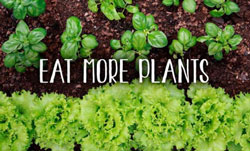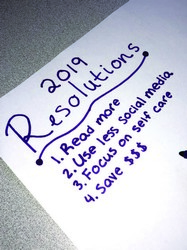Many times when you ask a vegetarian why they decided to make this life change, their answer might be “I don’t want to eat animals,” or “I want to try and save the cows, chickens, and pigs”, but there are many reasons to becoming a vegetarian than just saving animals.
Mary Harris, a specialist professor of communication and a vegan, said, “There are different types of vegetarianism ranging from lacto-ovo vegetarian to vegan or raw vegan. People choose to adopt a vegetarian or vegan lifestyle for a variety of different reasons including but not limited to personal health, disease prevention, healing health ailments, environmental concerns, cost efficiency, because they don’t want to harm or eat animals, etc.”
As Harris suggested, there are people out there that choose to become a vegetarian more for health reasons. It’s not all about saving the animals, it’s about what their bodies can handle. This may surprise you, but there are people out there that simply cannot digest meat.
For some, every time they eat a hamburger or ingest a chicken sandwich, they bring it back up. People who have this problem have no choice but to leave meat out of their diet. There are some people who actually wish they could eat meat, but become vegetarians because their bodies do not allow them to enjoy pork roll or cheeseburgers.
Brianna Graham, a junior communication major, is not a vegetarian but has a co-worker who is one at the deli they are employed at.
“My co-worker actually started as a vegetarian because her mom is one so she was influenced to become vegetarian as well. After she started working at the deli, you know around the meats, she chose to become vegan because she was so turned off by the look of the coldcuts!” Graham said.
Another reason people may become vegetarian is specifically just to lead a healthier lifestyle. “My co-worker also said that her mom used to be really overweight and she turned to vegetarianism to help lose weight, she lost 80 pounds.” Graham continued.
Animal meats, specifically red meats, are one of the largest sources of saturated fats in our diet. Eliminating meats such as beef, pork, lamb, and poultry, as little as one day a week, can reduce the risk of heart disease and some cancers. Also, adding a serving of produce to your diet each day may lower your risk of heart disease and your risk of stroke. Many people eliminate meat from their diets specifically just to become healthier in general.
According to Harris’ personal blog in regards to her health journey to plant-based foods, “I became a much happier, kinder, and more patient person, overall. Other benefits: I learned what it truly meant to be and feel healthy, I dropped some weight, and I started getting more physical activity into my daily routine. This was the first time in my life that I was treating my body with respect and filling it with optimal nutrition.”
Cindy Coffey, a graduate history student, became interested in vegetarianism while researching the diet for her daughter. She was concerned that her daughter, who suffers from a chronic illness, was not getting enough protein because she gave up meat.
“Meats tended to make her feel more sick. So I read “My Beef with Meat” and the nutritional information makes sense. Eating more plant based foods has been proven to provide an array of health benefits while meeting our nutritional needs. I gave up meat and my own digestive issues have really improved.” Coffey said.
Others see becoming a vegetarian as a more cost efficient option. The average cost of a pound of sirloin, according to realsimple.com is $6.20 while the average cost of a 15-ounce can of beans is $0.90. Beans are a great source of protein and are much cheaper than meat.
According to the U.S. Department of Agriculture, if a family of four replaces a steak dinner, which costs about $9.30 for 1 ½ pounds with a fresh bean and vegetable salad, which costs about $1.80 for two cans of beans, just once a week, they will save $7.50. If you do the math, that family will save over $390 in the entire year. It’s a general assumption that eating healthier costs more, but that is not true.
Having meat in your daily diet can actually be very pricey. Buying foods like vegetables, fruit, pasta, rice, etc. is a lot cheaper than buying red meat every night. Several people who decide to eliminate meat from their diet were influence by the cost of meat. Not all vegetarians decide to make this life changing decision because they feel bad for the cows or chickens, but they do it because they want to save money at the grocery store.
Also, some believe becoming a vegetarian makes for a greener planet. According to a United Nations report, the livestock industry creates almost a fifth of all greenhouse gases and takes up to 30 percent of the earth’s usable land.
Vegetables and other produce, such as fruit, do not even come close. Those who love the planet and are the “go green” type may give up meat because they believe it will help the planet. These planet lovers become vegetarians not because they feel bad for the cows or the chickens, but because they feel bad for the planet.
The stereotype of vegetarians is not always true. Some people look at a vegetarians and just simply assume they chose this lifestyle because they are animal lovers and they care about animals.
What many people do not realize is that there are several more reasoning’s behind becoming a vegetarian. There are plenty of people out there who simply cannot digest meat. Even if they wanted to continue to eat meat, they can’t because their bodies will not allow them to.
There are also people out there who simply choose to become vegetarians just to be healthier. Eliminating meat can not only help you loose weight, but can help decrease the risk of heart disease and certain cancers. Then you have those who just simply want to save money. Not eating meat on a daily basis can save you a ton of cash (which means you can spend that cash on something even better). And lastly you have those who believe no meat equals a green planet. So next time you “meat” a vegetarian, don’t jump to conclusions. There may be more to their choices than simply, “I love animals.”
IMAGE TAKEN from sproutandblossomwellness.com




